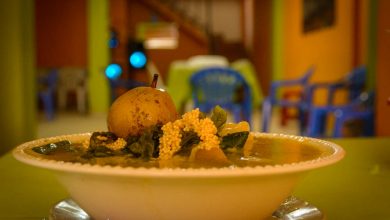Cuzco’s Happiness

When the days all over the world were equally balanced between light and dark, we celebrated a new honored day, the first International Day of Happiness. Though it caught many of us by surprise, it was declared by the United Nations last June for March 20th every year to draw all of our attention to happiness as a “fundamental human goal” and a purpose of economic development.
While discussing the Day of Happiness, Walter said that there are “a thousand and one reasons” why the people of Cuzco are happy.
“To begin, we are happy to live in this beautiful land. Despite it being chilly, the people are warm, pleasing, and friendly. Furthermore we live in the Empire of the Sun, the capital of Tawantinsuyo. We are happy to be a great culture and for out diversity of customs and traditions, as well as a varied cuisine.
We are happy because people from all over the world come to visit us.

It is a privilege to have been born here because we are always having a fiesta. We celebrate each day as if it were our last. We are happy to be part of this ancient culture filled with mysteries. Despite everything we are a united culture. Our traditions bring us together. And there s a strong connection between people and families. We still practice the values our ancestors left us such as ayni, that is helping each other, and living in reciprocity.

Finally, we are happy to live in this land that has seen us grow up.
” Happiness, though a delightful feeling, can be a nebulous goal. In fact it is usually far easier to see the clouds in the sky than to know how to generate happiness. There is no machine into which we put the raw materials of life on one end an on the other we pull out happiness, so we can lift a carton or two from the shelf, take it home, and bathe ourselves in it. Nevertheless, Walter hits some key themes I think.

He is right to recognize the power of his culture with its strong sense of itself, its past and its present. This is increasingly difficult in a globalized market for goods and culture which isolates people ever more one from another. Yet in Cuzco, despite problems found everywhere, there is a strong sense of identity and value, as well as tradition and norms.
One of its key norms is reciprocity, sharing with each other, helping each other, and being there for each other. This is formally celebrated in Cuzco’s many feasts, especially when there is a sponsor who must jurqar, that is oblige, each of his aynis, is partners in the social adventure of life, to contribute money and goods to the success of the feast as a collective end. Not only does it celebrate the group and make it visible, it also recognizes and strengthens the ties that bind people.
As a result, Walter is correct in valuing strong institutions such as friendship and family. These are still at the base of Cuzco’s life, even if they are not done in the same way they are in other countries. And, they contribute to the creation and functioning of all the region’s other institutions, such as churches, schools, businesses, and government.

But there is one other thing.
Life can be very difficult, as everyone in Cuzco knows. They suffer its afflictions like people everywhere. People grow ill and die. There are betrayals and anguish. Businesses fail. Sometimes people are hungry.
However, when people meet one another in Cuzco and especially when they come together, whether for coffee, dinner, or a celebration, they value showing happiness and joy. They live in a world where actions have an impact on others and the self, where they can create realities. To manifest a smile, a gleam in the eyes, laughter, a playful word, to dance and sing, to eat with gusto, to give each other hugs, and touch are actions meant to auger joy and happiness for others and for the self.
The people of Cuzco do have a kind of machine to create happiness, only it is not made by any industry. They have their trials and difficulties, but they have each other, good institutions, a solid and enduring culture, value in place, and an ideal of trying to make each other and themselves happy in fiestas and in ordinary, daily being together and sharing.
This is sumaq kausay, the good life.





